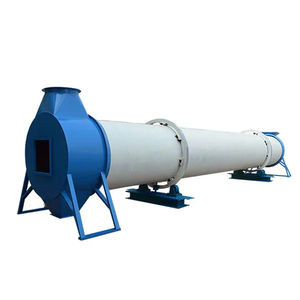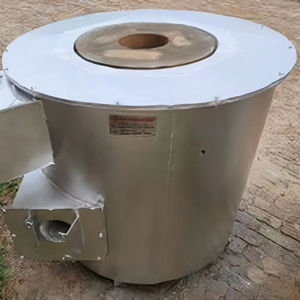Heavy machinery plays a critical role in industries such as construction, mining, agriculture, and transportation. These machines are designed to perform demanding tasks that require high power output, durability, and reliability. A significant portion of heavy machinery relies on fossil fuels—primarily diesel—due to their energy density, efficiency, and ability to deliver consistent performance under extreme conditions. This article examines common types of fossil fuel-powered heavy machinery, their applications, and the reasons behind their continued reliance on conventional energy sources.
(what heavy machinery uses fossil fuel)
**Excavators and Bulldozers**
Excavators and bulldozers are backbone machines in construction and earthmoving projects. Excavators, equipped with hydraulic systems and buckets, are used for digging trenches, foundations, and material handling. Bulldozers, with their wide tracks and heavy blades, excel in pushing large quantities of soil, rubble, or rock. Both machines typically use diesel engines, which provide the high torque necessary for heavy loads and continuous operation. Diesel’s energy density ensures extended runtime, reducing downtime for refueling during critical project phases.
**Haul Trucks and Dumpers**
In mining and large-scale construction, haul trucks and articulated dumpers transport massive quantities of materials over rough terrain. These vehicles often carry payloads exceeding 100 tons, requiring engines capable of generating immense power. Diesel engines dominate this sector due to their ability to sustain high load factors over long distances. Their robust design also withstands harsh environments, including dust, temperature extremes, and vibrations, which are common in mining operations.
**Cranes and Piling Rigs**
Heavy-lift cranes, tower cranes, and piling rigs are essential for infrastructure projects such as skyscrapers, bridges, and ports. Diesel-powered cranes offer mobility and independence from grid electricity, making them ideal for remote sites. Piling rigs, which drive deep foundations into the ground, rely on diesel-hydraulic systems to deliver the repetitive high-impact force required for driving piles into dense soil or rock. The instant power availability of diesel engines ensures operational efficiency in time-sensitive projects.
**Agricultural Machinery**
Tractors, combine harvesters, and irrigation pumps form the core of modern agriculture. Tractors equipped with diesel engines provide the necessary power for plowing, tilling, and towing implements across vast fields. Combine harvesters use diesel to simultaneously reap, thresh, and clean grain crops, operating for hours during harvest seasons. The reliability and fuel efficiency of diesel engines align with the cyclical and intensive nature of agricultural activities, where equipment uptime directly impacts productivity.
**Locomotives and Marine Equipment**
Diesel-electric locomotives remain prevalent in freight and passenger rail transport, especially in regions lacking electrified rail networks. These engines convert diesel fuel into electricity to drive traction motors, balancing power and fuel economy. Similarly, marine equipment such as dredgers, cargo ships, and offshore support vessels use heavy fuel oil or marine diesel engines. The maritime industry favors fossil fuels for their energy storage capacity, which is crucial for long-haul voyages without refueling infrastructure.
**Why Fossil Fuels Dominate Heavy Machinery**
The dependence on fossil fuels in heavy machinery stems from technical and operational factors. Diesel engines offer a high power-to-weight ratio, essential for mobile machinery requiring compact yet powerful energy sources. The combustion characteristics of diesel enable superior thermal efficiency compared to gasoline, translating to lower fuel consumption for equivalent work. Additionally, fossil fuel infrastructure is well-established globally, ensuring easy availability and maintenance support.
Heavy machinery often operates in isolated or challenging environments where alternatives like electric grids or renewable energy systems are impractical. Battery-electric solutions, while advancing, face limitations in energy storage capacity, charging times, and durability under heavy cyclic loads. Hydrogen fuel cells and hybrid systems are emerging but remain cost-prohibitive for many industries.
**Environmental Considerations**
The use of fossil fuels in heavy machinery contributes significantly to greenhouse gas emissions, particulate matter, and noise pollution. Regulatory bodies are imposing stricter emission standards, pushing manufacturers to adopt technologies like exhaust gas recirculation (EGR), diesel particulate filters (DPF), and selective catalytic reduction (SCR). Biofuels and synthetic diesel are being explored to reduce carbon footprints without retrofitting existing engines.
**Conclusion**
(what heavy machinery uses fossil fuel)
Fossil fuels remain integral to heavy machinery due to their unmatched energy delivery, reliability, and adaptability to extreme operational demands. While environmental concerns drive innovation toward cleaner alternatives, the transition is gradual due to technical and economic barriers. Industries must balance immediate operational needs with long-term sustainability goals, leveraging advancements in fuel efficiency and alternative energy systems. For now, diesel-powered heavy machinery continues to be the workhorse of global infrastructure and industrial development.


